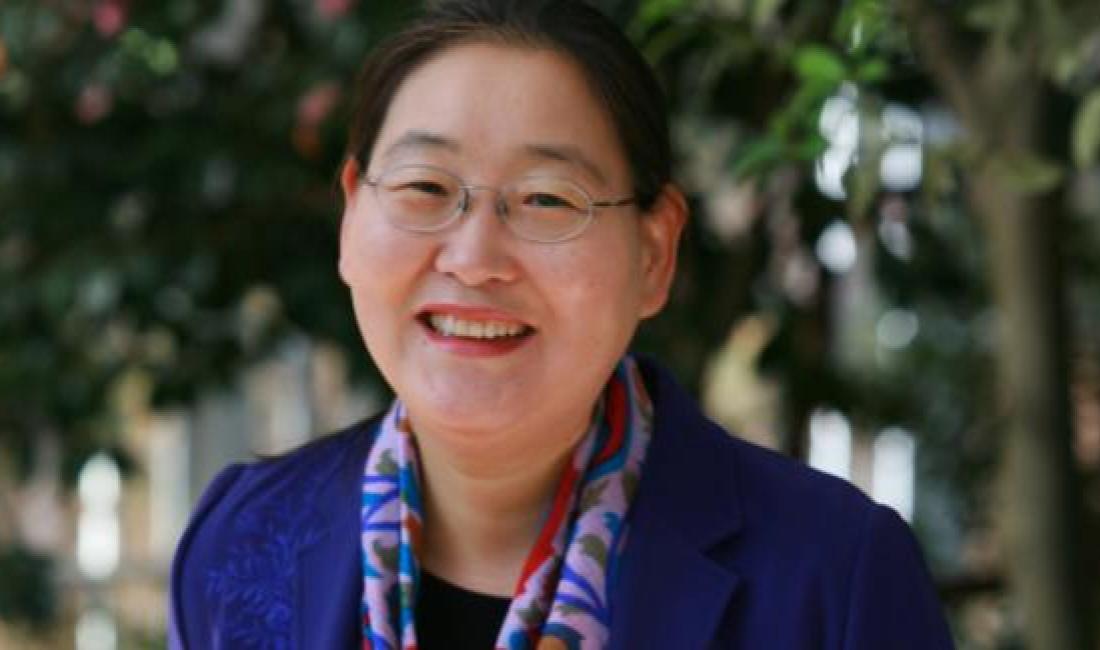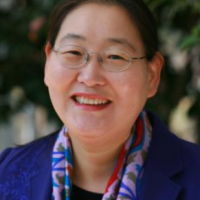Our patriarchy and economic obsessions have slowed democracy—and inspired backlash.
This story was first published as part of the Election Letters series at Zócalo Public Square.
More than three decades after South Korea’s democratic transition, we thought we had consolidated our democratic progress. We imagined that our democracy was strong and would grow stronger.
We are learning we were wrong.
We are learning that our achievements in institutionalizing democracy are weak because they were achieved in a top-down way, enacted by a president or other politicians. Our everyday, ordinary cultural behavior is not supportive of democracy. Nepotistic practices and arbitrary decision-making persist in our society.
As we approach the April 10 congressional elections here, Korea is seeing huge backlashes against our democratization.
Our democracy is looking fragile.
Our leaders still have significant power—too much power—that can be misused very easily.
We see this in a wave of investigations and prosecutions of the political opponents of those in power.
The administration of incumbent president President Yoon Suk Yeol has been investigating, and seeking to prosecute, his opponent in the last election, Lee Jae-myung, who calls the government a “dictatorship of prosecutors.”
There have been repeated raids of media outlets that are critical of Yoon, himself a former prosecutor. He has filed criminal complaints and defamation claims against critics. His administration also handled the indictment and firing of a broadcaster it didn’t like.
Activists have also been targeted. Recently, there were raids at multiple progressive labor unions and the homes of their officials.
The administration has been putting political pressure on the judicial branch, which is supposed to be independent.
Protections for women have been eroded, in the workplace and in society alike. The president rolled back a rule that 30% of the president’s cabinet be women, and leaders routinely scapegoat feminism for economic problems, like the high price of housing and stagnant incomes.
Our democratically elected government is starting to remind us of the way our country’s 20th-century military rulers once attacked critics.
This is a time when democratic institutions should rally to protect democratic gains. The problem is that the most important democratic institutions, our political parties, are weak and divided. The president has feuded repeatedly with the head of his own party, often over scandals and controversies involving the first lady (the gift of a Dior handbag is at the heart of the story). As a result, the party is in turmoil. There have been multiple leadership changes, and it also lost an election last fall in Seoul.
But the opposition is also divided over scandals and competing factions—one associated with the former president and the other with the presidential candidate that president Yoon is now prosecuting. Former members of both the ruling and the opposition party have formed a new party, the New Reform Party, but it lacks power.
The lesson from Korea is that establishing democratic structures and institutions is not enough to have real democracy. Real democracy requires deep participation from across society.
In addressing our lack of cultural democracy, Korea has to overcome the challenge of our history. In the previous century, Koreans emphasized economic growth above all other priorities. The military used economic growth as a way to justify itself.
That economic focus has persisted into the democratic era. In our lives, economics has overwhelmed all other priorities. I’m a professor, and I’ve been frustrated to see the academic field become more professionalized and insular, and less involved in civic duty. We have become very good at calculating the costs and benefits of every decision.
Our pragmatism and focus on economy have seriously affected interpersonal relationships, and demoted the value of love and marriage. Korea has some of the world’s lowest birth rates, and more than 30% of households just have one person.
Life, and democracy, can’t be built by such strict calculation. Our economic culture has isolated us from each other at the same time as it has polarized politics.
While serving as Korea’s cabinet minister for gender equality and family during the previous presidency, I cultivated a very different approach, one that was community-based and personal. We probed individual cases of family issues in depth, and then, based on those cases, developed new methods of care—childcare, care for one-parent families, and support for multicultural families, migrant families, and marriage itself.
We called this initiative the common community care system. Parents would care for each other’s children and build networks. Neighbors would care for neighbors, and get to know each other better. The people themselves would decide how to organize care.
We were trying to change our patriarchal culture. If people cared more for each other, they would think more broadly, and more on the social level—and not strictly economically—when they made decisions.
We made some progress before I left the ministry. But since then, there has been backlash and backsliding. Now the government is trying to eliminate my old ministry entirely.




